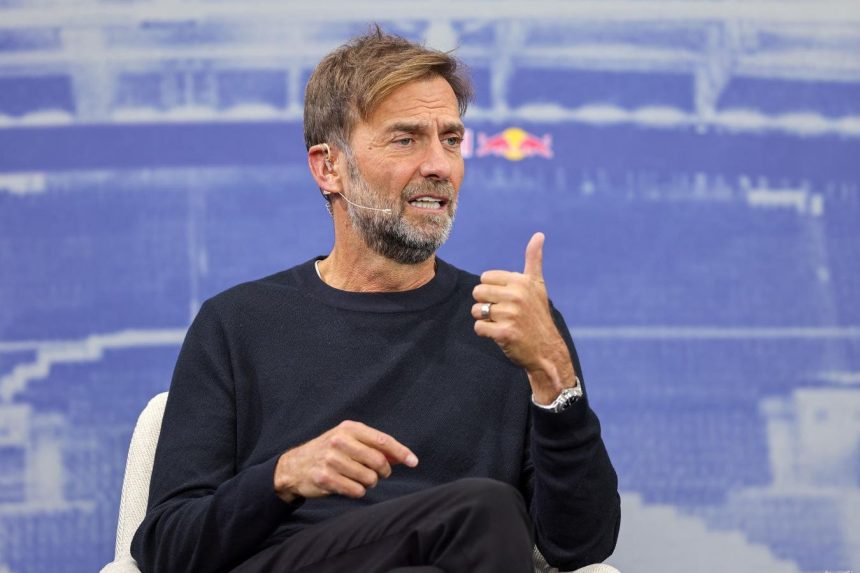Jürgen Klopp’s transition from the touchline of Liverpool to the boardroom of Red Bull marks a significant shift in his career and a fascinating intersection of personality and commercialism in modern football. His inaugural appearance as Red Bull’s global soccer head, held in the corporate serenity of Salzburg, Austria, stood in stark contrast to the vibrant, fan-filled stadiums he once commanded. While his trademark humor and charisma remained, his new role casts him in a different light, prompting questions about his alignment with a corporate entity often viewed with suspicion by football purists. This new chapter sees Klopp, the former champion of vibrant, community-driven football, becoming an integral part of a global brand that has fundamentally reshaped the football landscape, often to the chagrin of traditionalists.
Red Bull’s foray into football has been met with mixed reactions, particularly in Germany, where their ownership of RB Leipzig has stirred controversy. Their approach, involving significant financial investment and the transformation of pre-existing clubs, has been seen as circumventing traditional ownership models and prioritizing commercial interests over fan engagement. This contrasts sharply with Klopp’s previous image as a champion of fan-centric football, raising questions about how his values align with Red Bull’s corporate strategy. The partnership, however, highlights the increasingly intertwined nature of football and big business, where commercial success is often a prerequisite for on-field competitiveness. Klopp’s appointment, in many ways, symbolizes this reality.
Klopp’s decision to join Red Bull can be interpreted through multiple lenses. While some view it as a betrayal of his previous ideals, others see it as a pragmatic move in a rapidly evolving football landscape. The substantial financial package reportedly offered by Red Bull undoubtedly plays a role, but it is likely not the sole motivator. Klopp’s new role allows him to influence the development of football on a global scale, nurturing talent and shaping coaching strategies across multiple clubs. This presents a unique opportunity to leave a lasting legacy beyond the confines of a single team. His expertise and charisma make him a valuable asset for Red Bull, not just as a strategist, but as a powerful brand ambassador.
Red Bull’s football operation, despite the controversies, has achieved demonstrable success. Their clubs, including RB Leipzig, Red Bull Salzburg, and New York Red Bulls, have become competitive forces, developing young talent and playing dynamic, high-energy football. They have also attracted established stars, including former Liverpool players like Sadio Mané, Naby Keïta, and more recent transfers like Dominik Szoboszlai. This success, coupled with Klopp’s influence, could further elevate Red Bull’s standing in the global football hierarchy. Klopp’s experience and tactical acumen could be instrumental in refining their football philosophy and fostering a winning culture across their network of clubs.
While the financial aspects of Klopp’s move are undeniable, it’s essential to consider his broader motivations. His passion for football remains evident, and his new role offers a different avenue to pursue that passion. Rather than focusing on the day-to-day management of a single team, he can now contribute to the development of players and coaches across multiple continents. This broader perspective allows him to shape the future of the game in a way that transcends club rivalries and national boundaries. He becomes a global football architect, rather than a single team’s manager.
Klopp’s journey reflects the changing landscape of football, where commercial interests and sporting ambition are increasingly intertwined. His decision to join Red Bull, while perhaps surprising to some, represents a pragmatic adaptation to this new reality. He is not abandoning his footballing principles but rather applying them in a different context. His charisma, tactical expertise, and global appeal make him a potent force for Red Bull, offering them a unique opportunity to further solidify their presence in the global football market. While his future endeavors with Red Bull will undoubtedly be scrutinized, Klopp’s influence on the game continues, albeit in a new and evolving capacity.



